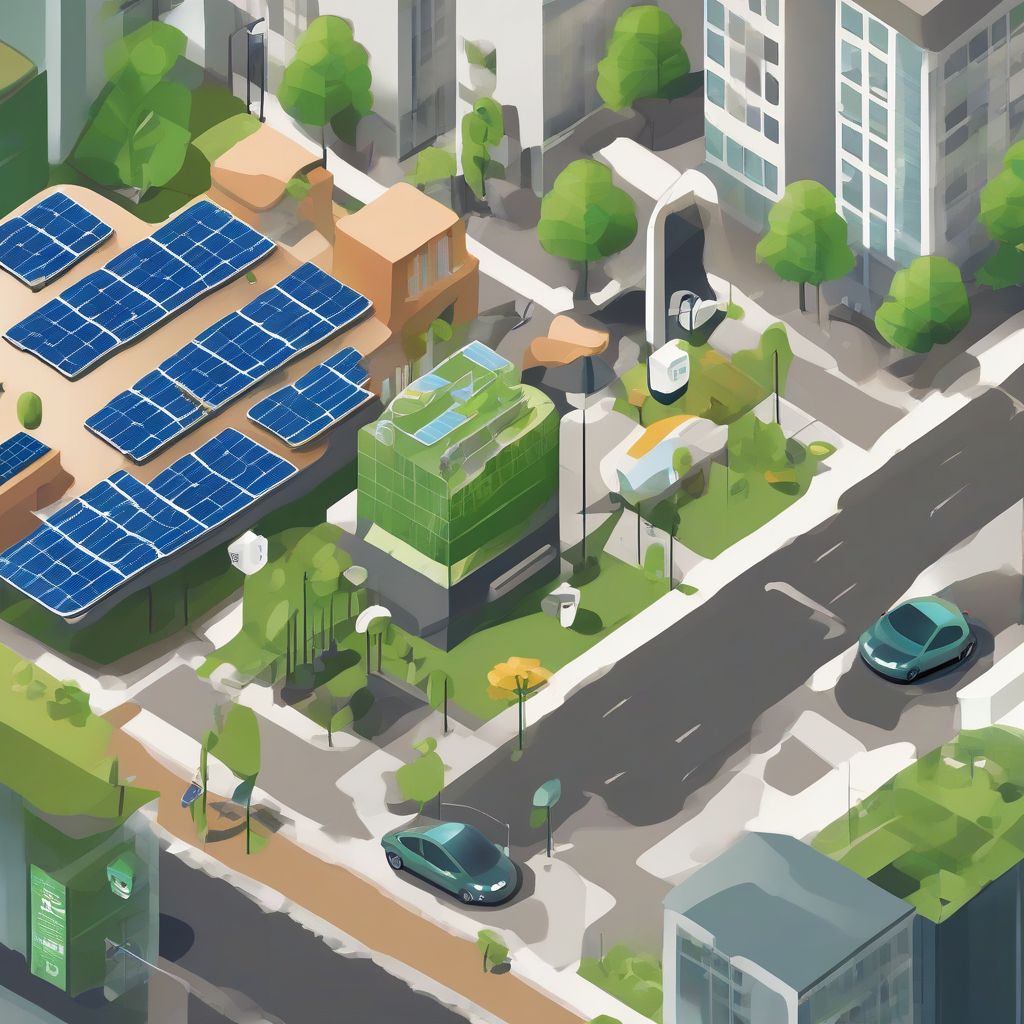Imagine a world where businesses thrive not only financially but also in harmony with the environment. This isn’t a utopian dream; it’s the reality sustainable technology offers. In today’s environmentally conscious world, adopting sustainable business practices isn’t just good PR; it’s a strategic advantage. Let’s explore how integrating sustainable technology can benefit your business.
What is Sustainable Technology?
Before we dive into the benefits, let’s clarify what sustainable technology entails. In essence, it refers to any technology designed to reduce a business’s environmental impact while promoting social and economic sustainability.
Think of it as a three-pronged approach:
- Environmental: Minimizing waste, reducing carbon emissions, conserving resources like water and energy.
- Social: Promoting fair labor practices, supporting local communities, and ensuring ethical sourcing of materials.
- Economic: Increasing efficiency, reducing long-term costs, and fostering innovation for a resilient business model.
The Compelling Benefits of Embracing Sustainable Technology
Now, let’s explore how these facets translate into tangible benefits for your business:
1. Cost Savings and Increased Efficiency
Contrary to the misconception that going green is expensive, sustainable technologies often lead to significant cost reductions.
- Energy Efficiency: Implementing energy-efficient technologies like LED lighting, smart thermostats, and optimized HVAC systems can drastically cut down electricity consumption, leading to lower utility bills.
- Waste Reduction: Embracing practices like paperless offices, utilizing recycled materials, and implementing efficient waste management systems minimizes waste and its associated disposal costs.
- Resource Optimization: Utilizing water-saving fixtures, implementing smart irrigation systems, and adopting sustainable packaging solutions all contribute to minimizing resource consumption and its associated expenses.
2. Enhanced Brand Reputation and Customer Loyalty
Today’s consumers are more environmentally conscious than ever before. They actively seek out and support businesses that align with their values.
- Positive Brand Image: Implementing sustainable practices showcases your commitment to environmental responsibility, enhancing your brand image and building trust with consumers.
- Competitive Advantage: Differentiate yourself from competitors by becoming a leader in sustainability within your industry. This attracts environmentally conscious customers and investors.
- Increased Customer Loyalty: Consumers are more likely to be loyal to brands that demonstrate a genuine commitment to sustainability, translating into long-term revenue growth.
3. Attracting and Retaining Top Talent
In today’s competitive job market, a company’s commitment to social responsibility plays a significant role in attracting and retaining talent.
- Millennial and Gen Z Appeal: Younger generations, who prioritize sustainability, are more likely to be attracted to and engaged with companies that share their values.
- Improved Employee Morale: Providing a healthy and sustainable work environment boosts employee morale, productivity, and overall job satisfaction.
4. Driving Innovation and New Market Opportunities
Embracing sustainable technology often goes hand-in-hand with innovation, opening doors to new markets and revenue streams.
- Product Development: Integrating sustainable practices can inspire the development of eco-friendly products and services, catering to the growing demand for sustainable options.
- New Partnerships: Collaborating with other sustainability-focused businesses can lead to innovative solutions and access to new markets.
5. Meeting Regulatory Compliance and Avoiding Future Risks
As environmental regulations become more stringent, businesses that proactively adopt sustainable technologies will be better positioned to comply and avoid potential penalties.
- Future-Proofing Your Business: Investing in sustainable technologies ensures your business is prepared for evolving regulations and avoids the need for costly retrofits in the future.
Real-World Examples of Sustainable Technology in Action
Let’s look at some examples of businesses successfully leveraging sustainable technology:
- IKEA: The furniture giant has committed to becoming climate positive by 2030. They’ve implemented solar panels on their stores, utilize sustainable materials in their products, and offer furniture buy-back and recycling programs.
- Unilever: This consumer goods company has pledged to halve its environmental footprint by 2030. They’ve focused on reducing waste in their operations, promoting sustainable sourcing of raw materials, and developing eco-friendly product formulations.
- Patagonia: This outdoor clothing company is renowned for its commitment to environmental activism and sustainable practices. They use recycled materials in their products, donate a percentage of sales to environmental organizations, and actively encourage customers to reduce, repair, reuse, recycle, and reimagine their clothing.
 Sustainable Business Practices
Sustainable Business Practices
Conclusion: Embracing a Sustainable Future
The benefits of integrating sustainable technology into your business are undeniable. From cost savings and enhanced brand reputation to attracting top talent and fostering innovation, sustainability is no longer optional; it’s a strategic imperative for long-term success. By embracing sustainable technologies, you contribute to a healthier planet and position your business for a thriving and prosperous future.
We encourage you to share your thoughts on this vital topic. What steps are you taking to incorporate sustainable technology into your business?
For further insights on creating a sustainable business model, explore our articles on “The Future of Sustainable Technology in Everyday Life” and “How to Create a Renewable Energy Plan for Your Business.”
[amazon bestseller=”sustainable business practices”]
